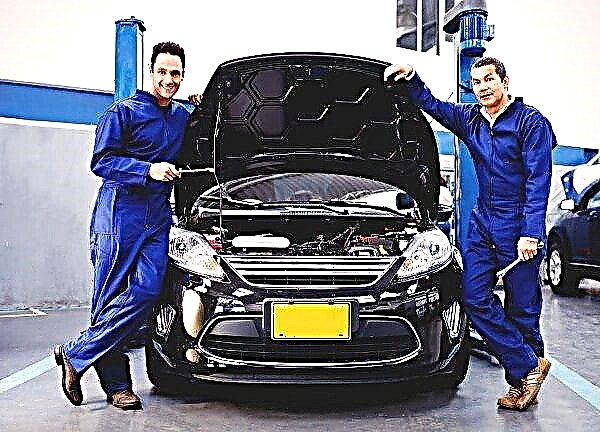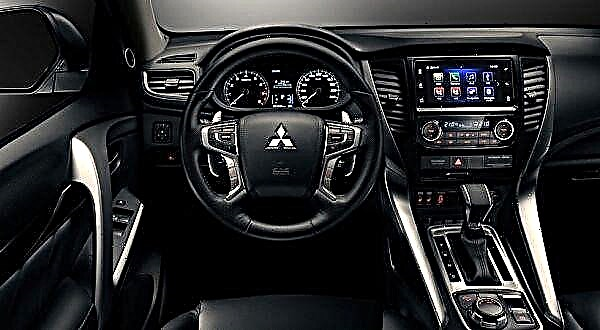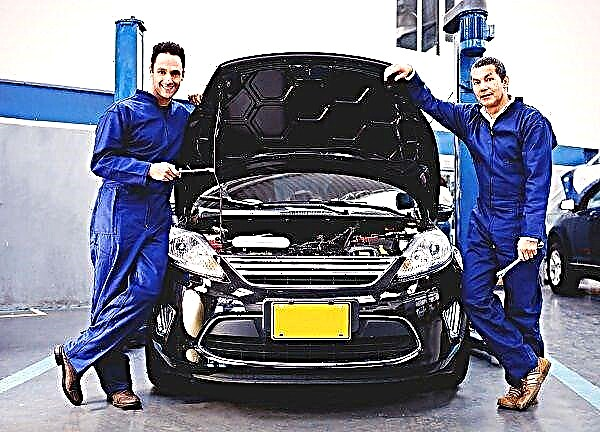
The content of the article:
- Car warranty concept
- Subtleties of the process
- Manufacturer requirements
- Tuning
- How to Avoid Warranty Conflict
When a new, under warranty car suddenly begins to show character, the car owner, without hesitation, takes it to the service. But there an unpleasant surprise can be expected - the official service station can recognize the case as not guaranteed. What should the driver do? Do you have the right to demand payment for repairs from him?
The car consists of more than 10 thousand parts, which are constantly under the influence of friction, pressure, temperature. Used or new, domestic or imported - absolutely any car can break down. Each specific case must be approached individually, since dealers can really take advantage of the inexperience of the car owner.
Car warranty concept

This document is the obligation of the car manufacturer, through its authorized representatives, to repair or replace worn-out parts and assemblies. During the warranty period, these procedures are performed free of charge.
However, if the manufacturer repaired every slightest malfunction, he would have gone broke long ago on service. For the purpose of his own safety net, he includes certain conditions and restrictions in the warranty card, which the owner of the vehicle must first familiarize with.
Warranty period
This period differs for European and Asian cars:
- European - includes 2 years without limiting the owner's mileage.
- Asian - lasts 3 years or 100 thousand kilometers.
If the owner sees other warranty offers as part of an advertising campaign for a model, this information should not be trusted. The specified conditions are world standards and cannot be otherwise.
At the same time, for units that are subject to the greatest wear and tear, the warranty may be provided with huge restrictions or even be absent. For example, for the battery, oil seals, brake discs, gaskets, shock absorbers and other similar parts of the mechanism, the warranty lasts from 20 to 50 thousand kilometers. For consumables such as candles, pads, lamps, fuses, it is not given by definition.
The nuances of the paintwork are usually given a special section. It is important to pay attention to the point about body through corrosion, which, as a rule, exceeds the period of the main warranty period. In some cases, 2 or even 6 times.
Automobile dealers are obliged to inform their clients about all conditions, and reputable companies put them in public at all on official websites. All subsequent warranty disputes arise for the most part due to the negligence of the buyer, who rarely reads the terms of the contract.
It is important to know - although the documents indicate that the warranty comes into force from the moment the car is sold, this is not entirely true. In practice, it begins to operate from the date of signing the document on the transfer of the vehicle.
Thus, if the buyer purchased the car on June 1, and took it from the salon with the signing of the appropriate acceptance certificate on June 10, then all breakdowns that occurred from June 1 to June 9 are paid out of their own pocket.
Subtleties of the process

Another reason to carefully read all the conditions and clauses of the contract - the service employees may take some points too literally. For example, if the "hardware" on the owner's car can literally be pierced with a finger, then this will be considered the very end-to-end repair. With a simple hotbed of rust, the likelihood of refusal of warranty service is high. In this sense, the owners of European brands are more fortunate, whose manufacturers are very careful about anti-corrosion treatment, bringing the warranty period up to 10-12 years.
The body, restored after the accident, is discussed separately. Since service repairs are significantly different from production repairs, dealers usually take responsibility for the repaired parts. However, the terms of such warranties will differ and the owner should also inquire in advance.
For paintwork, there is only one limitation - the absence of mechanical damage. There will be no complaints about chips and scratches, but places burned out in the sun, traces of high or excessively low temperatures will almost certainly be attributed to external influences. This also includes peeling spots after winter - the consequences of chemicals on the road. In this case, compensation should be claimed from utilities, and not from a car service.
Manufacturer requirements

It is in the interests of the automaker to protect themselves as much as possible from careless drivers, so they develop a number of specific requirements and restrictions. The most important of them is routine maintenance in official car services with the installation of original spare parts.
No matter how much the car owner would like to save money, do something on his own, for the warranty period all manipulations will have to be carried out exclusively by the dealer.
The prices that the drivers are so surprised at during the service are not justified by the impudence of dealers - they themselves are forced to report to the head divisions, to the automaker for fulfilling contractual obligations. And the sanctions applicable to them for claims from the consumer for poor quality service will be severe.
In addition, since any modern car is almost entirely composed of electronics, all its data must be read and updated by means of a diagnostic system available only from an authorized dealer. Otherwise, the oil change unconfirmed by the computer will not be accepted by the car, which will persistently signal its owner about the "error".
Failure to attend routine maintenance, interfering with the vital systems of the car by an artisanal method, installing non-original spare parts can lead to the dealer voiding the factory warranty.
In automotive practice, there are often cases when the buyer deliberately refused the warranty, and after a while parted with a significant amount of money due to elementary ignorance of the requirements for operating his car. Therefore, this is the second most important requirement of the manufacturer. For example, for robotic gearboxes, mandatory "neutral" is provided during stops, manual control is recommended, and relaunching is required when switching.
But Russian motorists rarely listen to the wishes of the automaker and operate with the transmission in the same way as with a conventional "automatic". This leads to very fast clutch breakdowns on newly purchased cars and a well-founded refusal of warranty repairs.
The next most popular reason for a dealer's refusal to provide warranty service due to improper operation is low-quality fuel. But here the situation is ambiguous; all other liquids are clearly described in the service book, but the recommendations regarding fuel are expressed only in octane, which allows you to vary these data in your own way.
Therefore, if a guarantee is denied, which will almost certainly follow, the car owner will have to resort to the help of an expert or even a lawyer to prove his own innocence.In this case, you need to know your rights and legal requirements. If the dealer refuses service, he must clearly justify his reasoning. And the owner of the car - to check the points of "incorrect operation" with those prescribed in the service contract. If those are not specified in the documents, you can safely sue for an unjustified refusal of a guarantee.
Tuning your car

A separate situation that also refers to the wording "misuse".
On the one hand, most often they are threatened with deprivation of the guarantee, and not always legitimately, for interfering with alarm systems, parking sensors and other electronic devices.
On the other hand, the dealer can be understood, since too often, after an incompetent intervention in the technique, the wiring caught fire, thereby destroying the car forever. Who, in this case, will be responsible for the breakdown?
Owners of cars with weak engines like to deal with chipping. But the artificial increase in power and torque knocks down all other settings of the car's mechanisms. This entails increased loads, wear of the engine and transmission, as well as the rest of the units involved in the process. Therefore, if such actions are detected, the dealer immediately deprives of warranty service.
How to Avoid Warranty Conflict

- To independently understand and study the warranty conditions, requirements and obligations before purchasing a car.
- Operate the vehicle exclusively in accordance with the relevant instructions.
- Do not interfere with the operation of mechanisms, do not experiment with tuning, do not install additional equipment.











